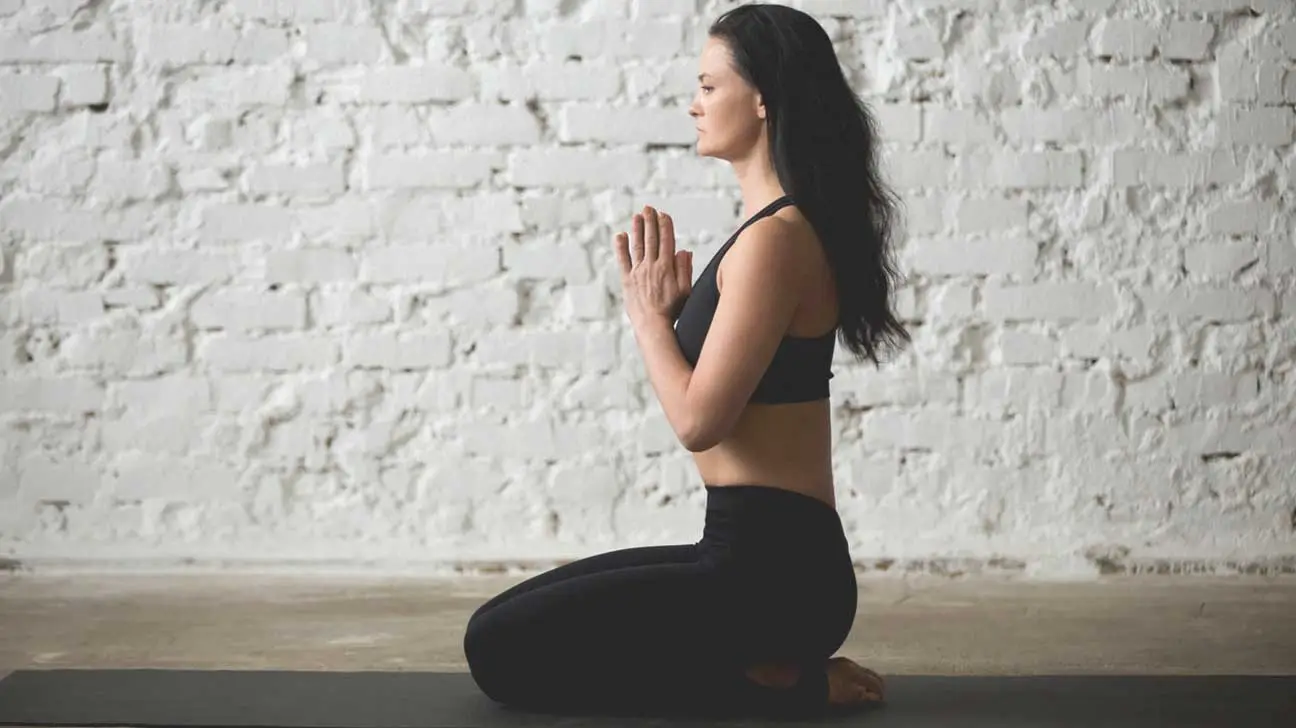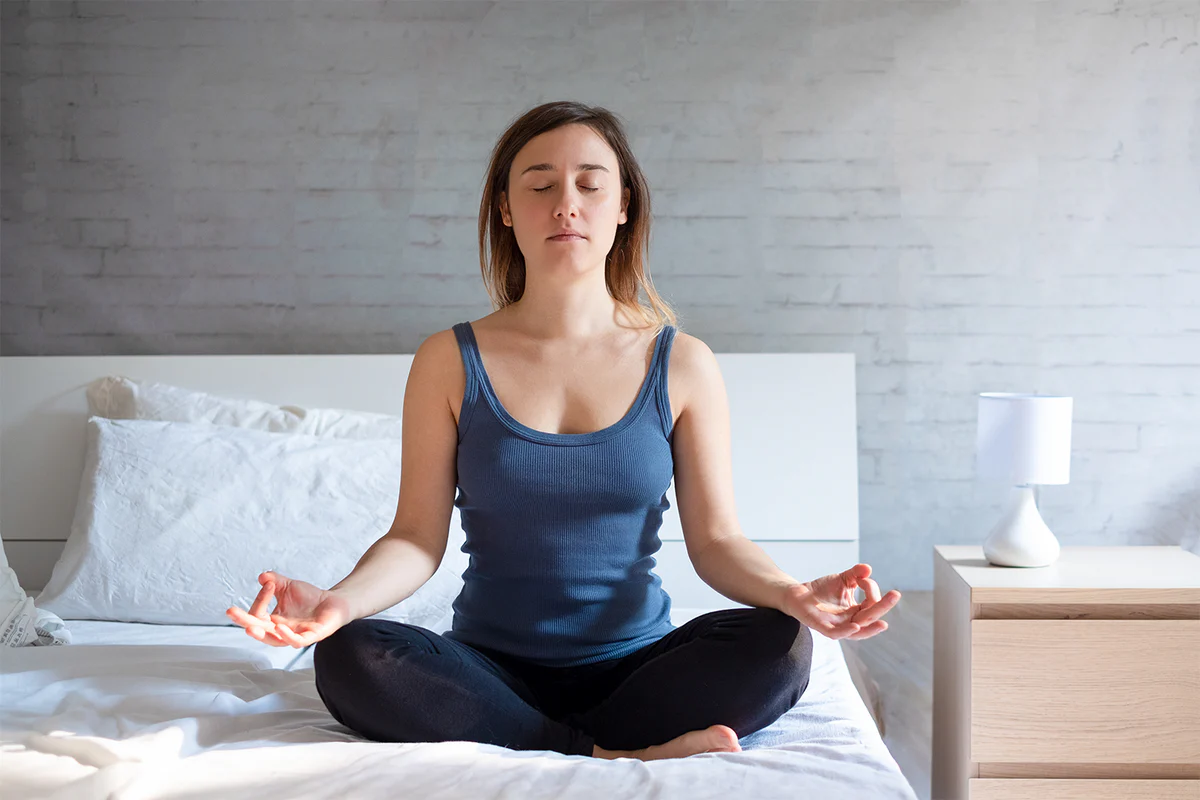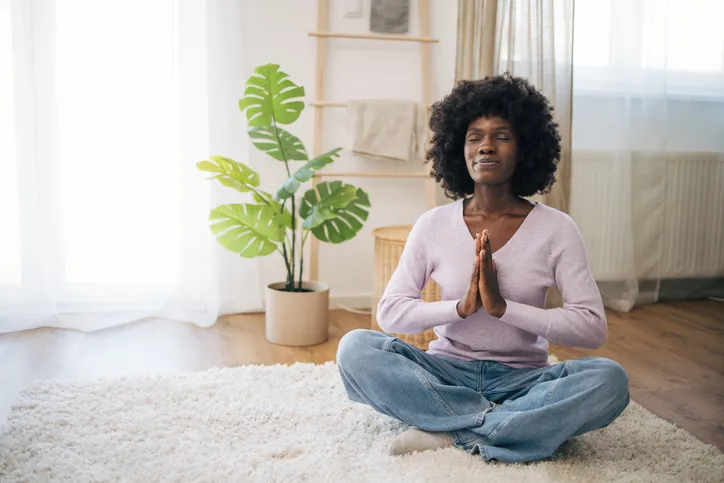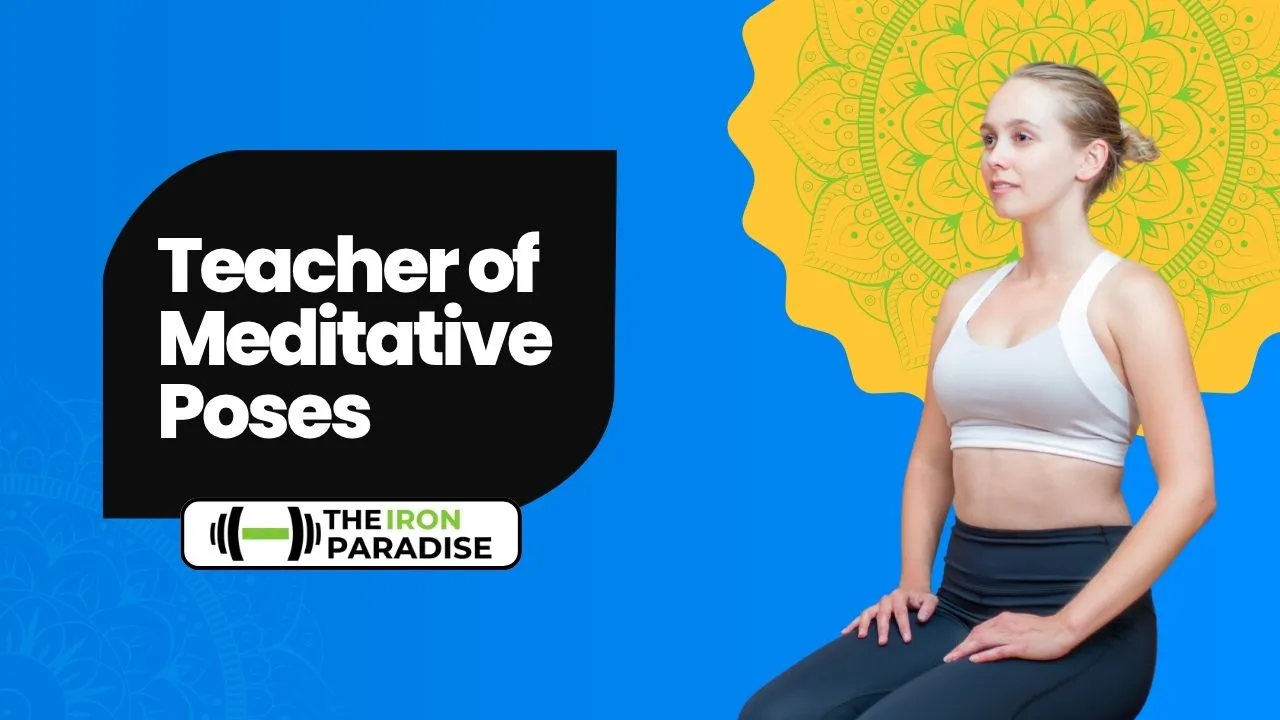
You have taken up contemplation. Be that as it may, your considerations are heading off in all paths, and it appears to be a unimaginable accomplishment to keep on track. You begin questioning. To remain inspired, you want certain signs that you are on the correct way. Yet, how to know if you are meditating properly?
Each and every individual who contemplates has contemplated whether they are getting things done well. What's more, a few signs can let you know if you are. Search for these six signs.
1. You become drowsy

Becoming worn out or in any event, nodding off isn't an objective in contemplation. However, it is a triumph sign for fledglings. At the point when you figure out how to initiate the unwinding reaction that is set off by contemplation, your body goes into a supportive mode. In the event that your sympathetical sensory system has been overactive, you could get a response the alternate way once you begin unwinding.
Assuming you are experiencing pressure and nervousness, you might encounter the accompanying. In the first place, you could find it trying to manage anxiety. You probably won't have the option to fight the temptation to over and over change your sitting position, scratch yourself to a great extent or make a sound as if to speak. However at that point, the second you really begin how to know if you are meditating properly, rest overpowers you.
You could likewise end up in a state where you are don't know whether you are snoozing or conscious. You are equipped for noticing your contemplations yet not to recollect any of it. Such sluggishness or even rest is an indication that lets you know that you were meditating. It is a positive sign assuming you are beginning, yet it is something that you ought to survive.
2. You stay motionless, and finish what you start
One critical essential for contemplation is a uninvolved disposition. That implies that the second you begin making a move in light of what you are encountering, then, at that point, you are not pondering any longer. So assuming you choose during your contemplation that you really want to take care of you or move your legs then at those times you are not meditating, you are surrendering to fretfulness.
Would it be a good idea for you conclude that what you are doing is babble and you stop your reflection early, that is a certain sign you have lost your uninvolved mentality.
The inquiry we are attempting to answer is "How would you realize you are truly pondering?" The second sign that you truly are is thus that regardless of inconvenience, uncertainty and self-decisive contemplations you proceed with your reflection and finish it as expected.
3. The quality of your thoughts changes

At the point when you start your contemplation, your psyche will be overwhelmed by considerations connected with your nearby climate, the actual reflection and anything that you did not long prior to beginning your contemplation. You could contemplate the posture you are sitting in or inquire as to whether it was smart to leave the window open. You could ponder assuming you are getting reflection right or then again on the off chance that you are burning through your time. Perhaps you will scrutinize yourself for getting some much needed rest as opposed to working.
Notice these considerations and connect with them as mental cycles instead of bits of insight. Then, at that point, your brain will before long be finished with them. By then, different sorts of thoughts and feelings will dominate.
Considerations might come connecting with your overall life circumstance. An awkward episode with your supervisor a couple of days prior could ring a bell, or issues with your better half or your youngsters. You could imagine a test you will do sooner rather than later or about your excursion that is a month away.
Assuming you continue simply noticing these considerations with no judgment, the reflection cycle will go on, and your contemplations will turn out to be more emblematic and fanciful. States feelings and recollections from some time in the past can emerge. As the contemplation turns out to be more significant, your inner mind begins to open up.
By estimating the electrical action of your cerebrum, a researcher distinguishes mind wave designs related with increasingly deep states. The continuously more significant substance of your psyche connects with these brainwave designs.
In this way, assuming you notice that the nature of your viewpoints is changing, that is a certain sign that you are truth be told thinking.
4. The feeling of your body alters
At the point when you meaningfully alter your condition of cognizance during reflection, you could see natural sensations in an unexpected way. As a fledgling meditator, you could find these new sensations emotional and awkward. Be that as it may, you will rapidly become acclimated to it.
You could feel like your body is a lot greater than expected or the delicate sound of your breath could out of nowhere seem significantly stronger. A slight disequilibrium in your position can likewise be enhanced and give the feeling that you are inclining. You could feel delicate shivers and shining sensations. This is your typical body experienced with more than expected mindfulness.
In the event that you notice surprising actual sensations, that is one more prompt that without a doubt you are pondering.
5. You no longer identify with the content of your mind
Toward the start of a contemplation, it can feel as though you are investing your energy engaging your considerations. Your contemplations feel exceptionally thick and especially like they are essential for you.
However at that point, you could see that your considerations get less and less obtrusive. You become fit for isolating your contemplations from yourself. Presently, you are not your considerations; you are the eyewitness of them. The psychological action travels every which way, however you never again need to shield yourself from it.
At the point when you make this differentiation, and when you never again relate to your viewpoints, that is a fundamental achievement sign. That is the 6th sign that assists you with confirming that you are truly meditating and not misleading yourself.
6. You are aware that you are meditating
Contemplation includes concentrating on an anchor point. It very well may be your unconstrained breath, the vibe of your body, a mantra or something different. As a novice, you are probably going to see that it is very interesting to remain with your anchor point. Your psyche rapidly goes off somewhere else. You may be baffled by that and accept it as a sign that you are not meditating accurately.
As a general rule, for open mindfulness style reflection (care for instance), the anchor point is a reference point as opposed to a focus object. At the point when you reflect, you ought to hope to move away from it. What you are preparing is the capacity to know about the psyche going somewhere else, perhaps disregarding the thing you are doing — and afterward bringing your consideration back.
Subsequently, the principal sign that how to know if you are meditating properly is that you know about the way that you are pondering different things. A critical contrast among that and is by and large unwittingly lost in considerations.
Benefits of Successful Meditation
Most care meditation methods are worked around upgraded present second mindfulness. Notwithstanding, on the off chance that you think meditation is just about unwinding "in the now", it turns out to be not difficult to accept that you're reflecting accurately when truly you're simply having a snapshot of transitory unwinding as opposed to contributing towards enduring genuine serenity. Characterizing meditation in this shallow manner implies you pass up a significant number of the advantages of reflection; these incorporate expanded concentrate, better rest, further developed mind-sets and diminished pressure. An ordinary reflection practice can assist with making these positive things a characteristic piece of your day to day existence.
Each type of meditation has an alternate reason and an alternate rundown of advantages. Evaluating a wide range of practices can permit you to find the style that best matches your expectation, points, character and life conditions. For favoring this subject, look at our article on the six principal sorts of reflection. However, for the time being, how about we plunge further into precisely exact thing it seems like to accurately think.
What does it feel like to meditate correctly?

Before we go any further, it's vital to take note of that there isn't be guaranteed to any correct method for contemplating. Various individuals do it in various ways, and that is absolutely fine. Eventually, it's an exceptionally individual practice, and in that capacity, the outcomes individuals see can shift colossally, and you ought not be dampened in the event that you haven't encountered the sentiments, sensations and disposition transforms we'll examine later in the article.
As we examined before, it's not difficult to fall into the "unwinding" trap during a meditation meeting; in this manner, it's memorable's vital that intervention is planned to assist us with developing more engaged, mindful and intellectually strong. The training can have a wide range of results, contingent upon the kind of reflection practice you use, the goals you set, and the time you spend rehearsing.
Consequently, we've thought of a rundown of characteristics that will arise assuming you are thinking "accurately". Ideally, these characteristics will assist you with choosing if you're getting everything done as well as possible, or not. You can definitely relax assuming you feel that you are battling to encounter the advantages of reflection — we will provide you with a munititions stockpile of activities to assist you with building your meditation muscle.
FAQs
What are you supposed to think while meditating?
"The key is attention to the contemplations and permitting them to exist without making a move at that moment," Barajas says. "You don't need to contemplate anything. There is no 'ought to. ' The perspective is anything that you'd like it to be."
How do you know you are progressing in meditation?
Expanded mindfulness.
Better connections.
Widened reflection range of abilities.
Development of normal care.
Is it OK to fall asleep when meditating?
Nodding off while pondering is extremely ordinary and on the off chance that it happens to you each now and, you don't have to stress excessively. At the point when we figure out how to think, we are searching for a harmony among concentration and unwinding, and in the process it is unavoidable that occasionally we will head excessively far in one or the other path.



